Edu-Hackathon with Google
It is always a great pleasure to take part in MOOCs organised by European Schoolnet, the non-profit organisation based in Brussels, Belgium. They are free, engaging and useful. Active learning, coding, digital literacy, disinformation, sustainability and STEAM are just some of the learning topics covered so far. These MOOCs encourage teachers to reflect on their practice and challenge them to bring out the best in themselves and improve their professional practice, giving them the opportunity to develop different pedagogical materials, such as learning scenarios or action plans, and review the work done by other participants.
Since both my younger and older primary school pupils and I enjoy trying out different digital tools and apps, in spring 2022, I decided to take part in the Computer Science: Educator's Guide MOOC, supported by Google. It was an excellent opportunity for all the participants to discover and share different innovative learning approaches and resources related to computer science and computational thinking, such as problem-based and project-based learning approaches, unplugged coding for active learning, or visual and text-based programming.
As a follow-up, sixteen other teachers from ten European countries and I were invited to participate in the face-to-face training course. The excitement was in the air!
The Edu-Hackathon with Google training course was held in Brussels, Belgium, from 1 to 3 December 2022, and resulted in the creation of a number of quality learning scenarios on the topic of computational thinking, focusing on sustainability, diversity and inclusion.
The venue itself, the European Schoolnet's Future Classroom Lab, is amazing. For most of us, it was the first time to discover such a flexible learning space, and explore its learning zones, equipment and gadgets.
A warm welcome was wished to all the teachers by course coordinators, Eugenia Casariego and Arjana Blažić, who made sure everyone felt pleasant and thanks to whom the hours spent in the Lab flew so fast.
During these three days, we eagerly participated in interesting and engaging workshops. We exchanged good practices on how to teach Computer Science and use other innovative methodologies, such as coding, in our lessons. We also recommended various digital tools for the six categories of the online Learning Scenario Tool.
We started each day with a warm-up activity which helped us get to know each other better. In international teams, we played the escape room game Out and about in Belgium, and checked our knowledge about Belgium and its famous landmarks. We also put our creativity and construction skills to the test and, as a team, tried to make a bridge that would stand on its own by using special cubes, but we were not allowed to speak. It was a bit challenging, but a lot of fun.
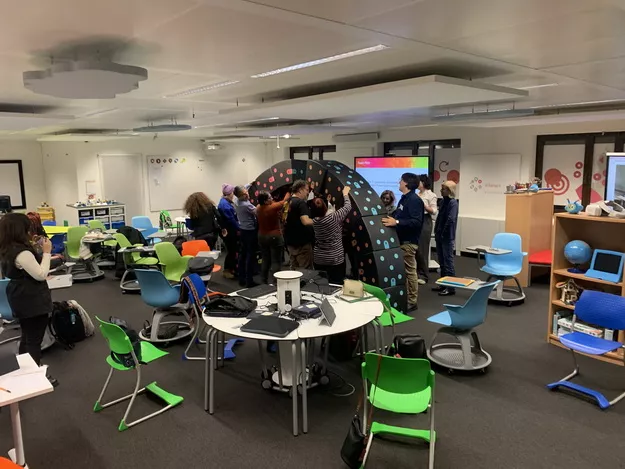
As for more serious work, our co-creation sessions had three stages. First, our coordinators reminded us of the different phases of creating the learning scenario, highlighting the good examples of our own scenarios created during the spring MOOC. Then, in small groups, divided by interests, and inspired by the course learning scenarios, we used the Novigado Scenario Tool to design our innovative learning scenarios on a chosen topic - inclusion and diversity, or sustainability. In the next stage, we shared our learning scenarios with the other groups, provided and received constructive two stars and a wish feedback, made adjustments and, finally, presented the completed learning scenarios to the others on the third day of our training.
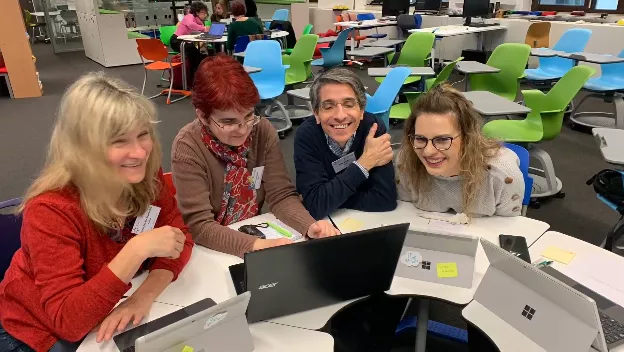
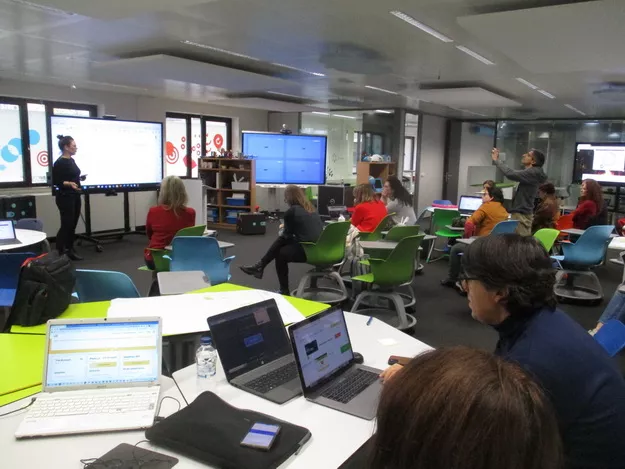
Each of us received a Certificate of attendance and an invitation to join the Focus Group which will implement the learning scenarios into the classroom and share them at the national level.
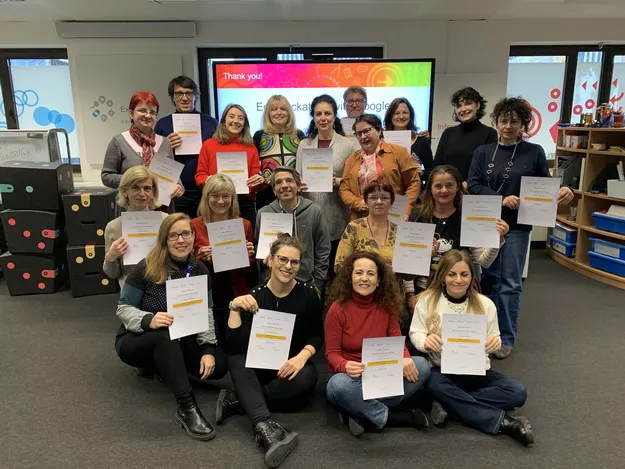
Since the training was organised at the beginning of the festive season, we had a chance to feel the winter magic, admire the spectacular Light and Music Show at the magnificent central square, talk to the friendly locals and take photos in front of the enormous Christmas tree in the centre of the Great Square, to visit the colourful Christmas markets, taste delicious food prepared right in front of us, and, of course, buy some souvenirs.
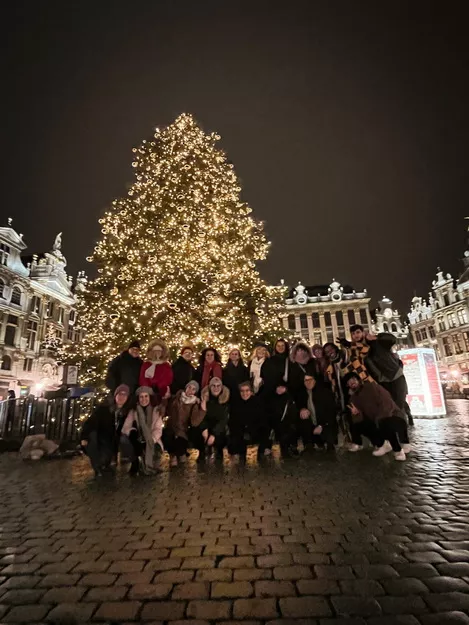
Participating in this training course was an excellent opportunity to meet the like-minded educators from different European countries, share practical teaching ideas and strategies, and develop both professionally and personally.
Special thanks go to the Edu-Hackathon team for giving me the opportunity to attend this event!




